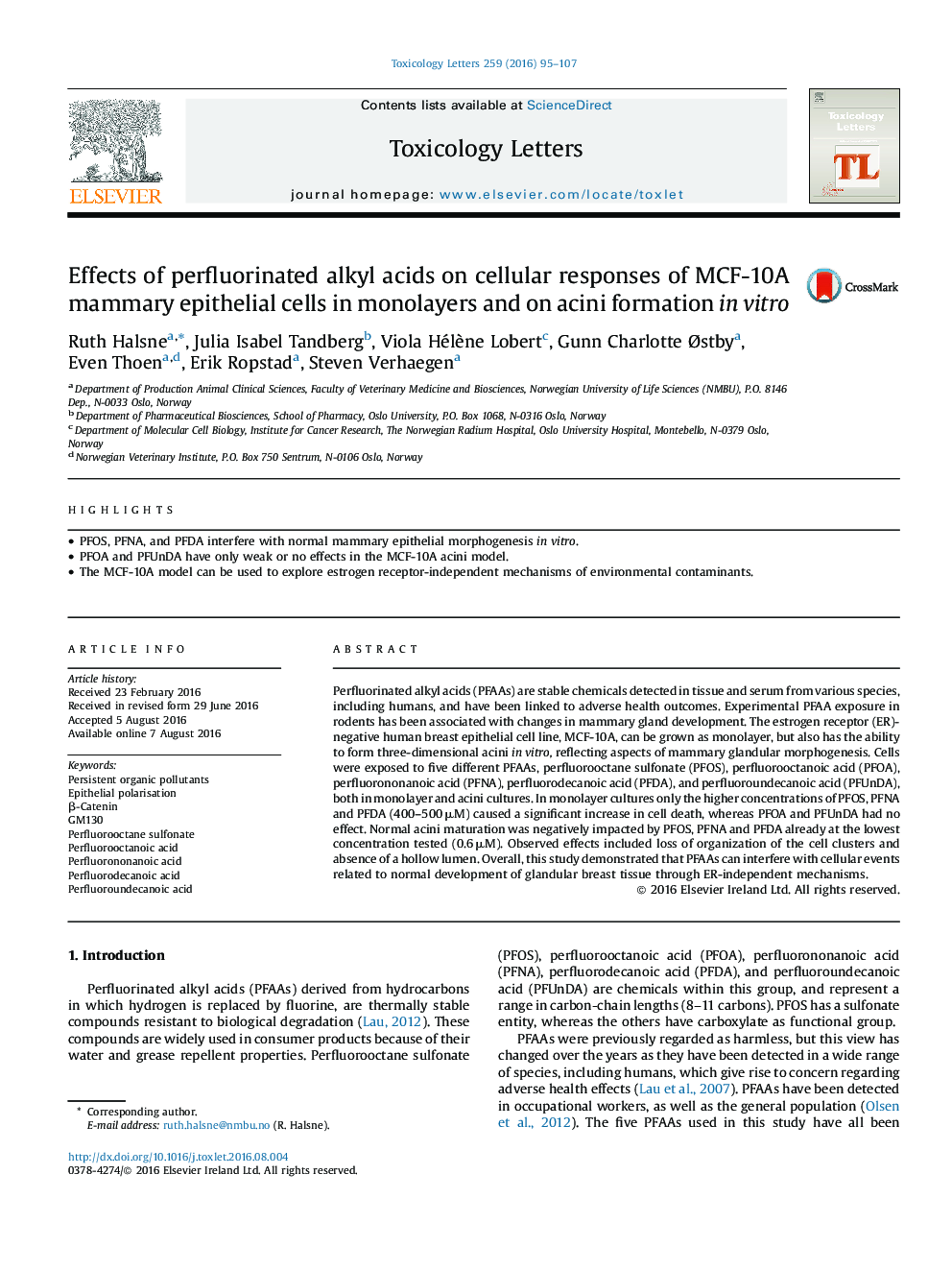| کد مقاله | کد نشریه | سال انتشار | مقاله انگلیسی | نسخه تمام متن |
|---|---|---|---|---|
| 5859695 | 1562614 | 2016 | 13 صفحه PDF | دانلود رایگان |
عنوان انگلیسی مقاله ISI
Effects of perfluorinated alkyl acids on cellular responses of MCF-10A mammary epithelial cells in monolayers and on acini formation in vitro
دانلود مقاله + سفارش ترجمه
دانلود مقاله ISI انگلیسی
رایگان برای ایرانیان
کلمات کلیدی
GM130Persistent organic pollutants - آلایندههای آلی دیرپا(پایدار)perfluorodecanoic acid - اسید perfluorodecanoicPerfluorononanoic acid - اسید PerfluorononanoicPerfluoroundecanoic acid - اسید Perfluoroundecanoicβ-catenin - بتا-کاتنینPerfluorooctane sulfonate - سولفونات PerfluorooctanePerfluorooctanoic acid - پرفلوئورواکتانوئیک اسید
موضوعات مرتبط
علوم زیستی و بیوفناوری
علوم محیط زیست
بهداشت، سم شناسی و جهش زایی
پیش نمایش صفحه اول مقاله

چکیده انگلیسی
Perfluorinated alkyl acids (PFAAs) are stable chemicals detected in tissue and serum from various species, including humans, and have been linked to adverse health outcomes. Experimental PFAA exposure in rodents has been associated with changes in mammary gland development. The estrogen receptor (ER)-negative human breast epithelial cell line, MCF-10A, can be grown as monolayer, but also has the ability to form three-dimensional acini in vitro, reflecting aspects of mammary glandular morphogenesis. Cells were exposed to five different PFAAs, perfluorooctane sulfonate (PFOS), perfluorooctanoic acid (PFOA), perfluorononanoic acid (PFNA), perfluorodecanoic acid (PFDA), and perfluoroundecanoic acid (PFUnDA), both in monolayer and acini cultures. In monolayer cultures only the higher concentrations of PFOS, PFNA and PFDA (400-500 μM) caused a significant increase in cell death, whereas PFOA and PFUnDA had no effect. Normal acini maturation was negatively impacted by PFOS, PFNA and PFDA already at the lowest concentration tested (0.6 μM). Observed effects included loss of organization of the cell clusters and absence of a hollow lumen. Overall, this study demonstrated that PFAAs can interfere with cellular events related to normal development of glandular breast tissue through ER-independent mechanisms.
ناشر
Database: Elsevier - ScienceDirect (ساینس دایرکت)
Journal: Toxicology Letters - Volume 259, 30 September 2016, Pages 95-107
Journal: Toxicology Letters - Volume 259, 30 September 2016, Pages 95-107
نویسندگان
Ruth Halsne, Julia Isabel Tandberg, Viola Hélène Lobert, Gunn Charlotte Ãstby, Even Thoen, Erik Ropstad, Steven Verhaegen,